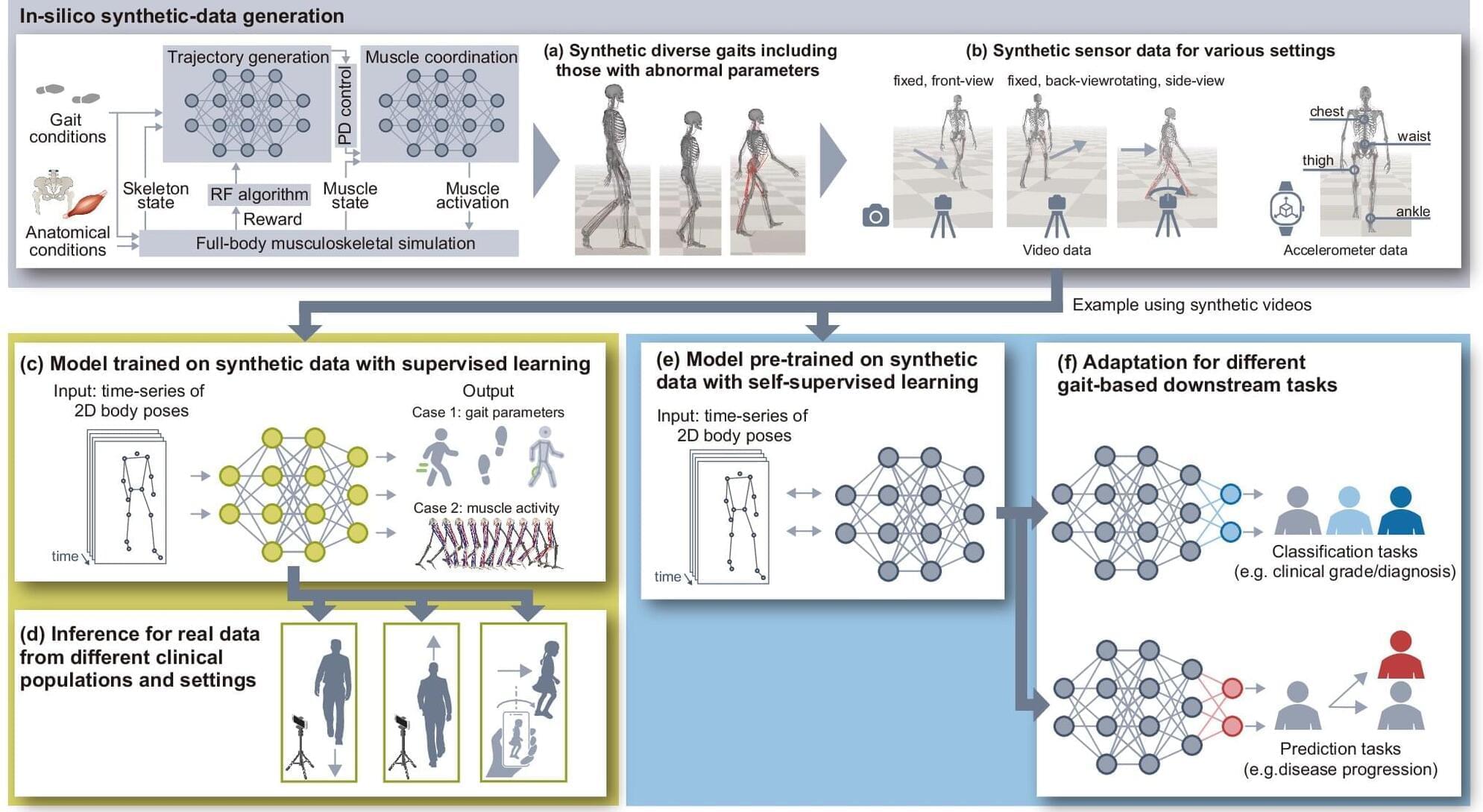Gait assessment is critical for diagnosing and monitoring neurological disorders, yet current clinical standards remain largely subjective and qualitative. Recent advances in AI have enabled more quantitative and accessible gait analysis using widely available sensors such as smartphone cameras.
However, most existing AI models are designed for specific patient populations and sensor configurations, primarily due to the scarcity of diverse clinical datasets—a constraint often driven by privacy concerns. As a result, these models tend to underperform when applied to populations or settings not well represented in the training data, limiting their broader clinical applicability.
In a study published in Nature Communications, researchers from IBM Research, the Cleveland Clinic, and the University of Tsukuba propose a novel framework to overcome this limitation. Their approach involves generating synthetic gait data using generative AI trained on physics-based musculoskeletal simulations.
